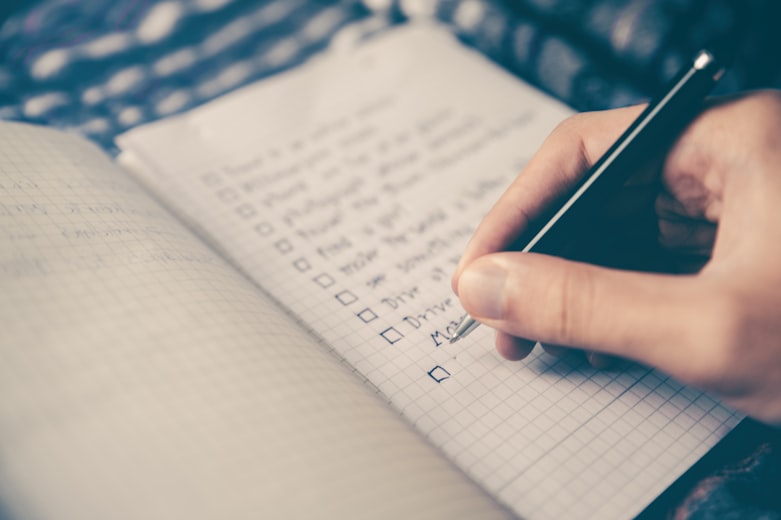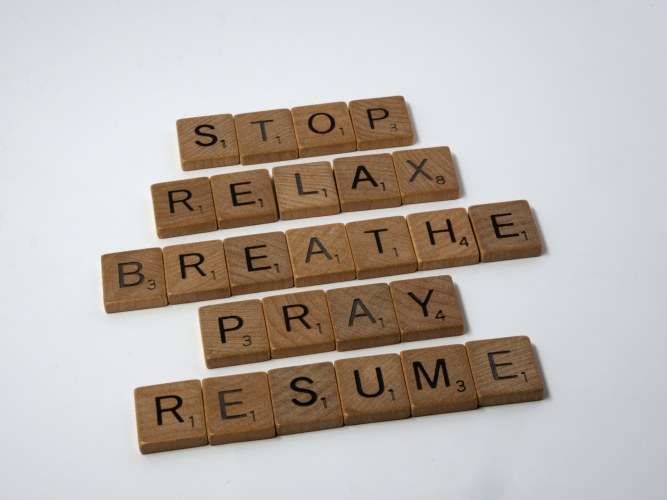A resume is the documented version of yourself you send in different corporations or sectors as a mandatory requirement for the job application. It includes everything about yourself; personal information, academic information, skill set, past work experience etc. A powerful resume is one that fails to leave doubts about you. But how long should it be to impress the employer?
Well, that is an opinionated answer. It all depends on how you reflect yourself on the resume and the target company you will be sending it. If you ask people around, they’ll suggest making it one-pager while others will want you to write pages about yourself. Although it’ll seem like one-page resume will stand out among other lengthy resumes, but it is not justified to judge someone appropriately over the resume length. The length often comes after content and presentation.

There is no specified limit to your resume length, but we have covered some relevant aspects for you to decide how long should your resume be.
Resume Length
One, two, or more page. How will you figure that out? The first step is to know your current qualification and experience.
For college students, fresh graduates or professionals with less than five years of experience, ideal resume length is two pages. The reason is that employers will be judging you based on your skills, qualification or experience you have as of yet. You do not want to fill your resume with irrelevant details that do not account for the job you are applying. It will increase the length of your resume, unnecessarily, and disinterest the employer. In your situation, the employer will give a quick skim to your resume and proceed towards the interview. So try to write relevant and important information in a clear concise manner not exceeding 2 pages.
For professionals with years of experience, you can go beyond 2 pages. Now, the number of pages will depend upon the achievements and accolades you will describe there. If you were a Project Lead for a company for 10+ years, you shall list down all the projects you have completed up till now in the resume. These unique projects and skills may uplift your resume hence increasing the pages here is not an issue.

How many pages then?
One Page
One page resumes are suitable when relevant, to-the-point information is to be delivered. It is best in the following environment:
- Fresh Graduates
- Professionals with less experience
- Change of Career
Two Page
Two Paged resumes give you more liberty and add context and depth to your resume. They are suited best in the following environment:
- 7+ years of experience
- Diversified experience and skills
- A detailed description of previous jobs where you made a significant impact
- Extensive community service work or volunteer experience
- Applying for a midlevel position
Three+ Page
You have to be careful when going towards three or more page resume. It is applicable in the following environment:
- Professionals with a long career
- Professionals having extensive experience
- Professionals who want to list all their achievements and allocates.
- Professionals who are applying for a higher position in a company.
How to perfect your resume?
Since you know the laying facts behind the choice of length of your resume. Here are some guidelines or tips you must consider while creating your resume.

Following are some points you must keep in mind when deciding the resume length:
The 15-Year Factor
This is for professionals who have crossed the 15 year career span. You don’t necessarily have to include the experience you gained beyond 15 years. The skills you gained in the last 15 years in enough to land you the job you have applied for. The employer would only be interested to see your most recent experience and skills. Emphasize what happened recently; job shifts, skills increment, achievements. You shouldn’t include or at least describe in detail what you did over 15 years ago. Besides that, the only 15 Year Factor that matters are your education background. That can’t be avoided.
Resume Formatting
Playing it resume style is often recommended. You can go with making fonts small or adjust line space or margins.
Margin: It is recommended to adjust margins to 0.5 – 1 inch. It is to make your resume text look even distributed and not stacked too close to each other. A common strategy is to have a 1-inch margin for less text and a 0.5-inch margin for too many texts. Don’t go beyond the limits of 0.5 and 1 inch since it may look too spaced out or too close to each other.
Word Style: You may also change word style. The bold text takes more space than an italicized word. You can experiment changing most of the bolds to italics and you’ll see the reduction in resume length. Also, you can adjust the font size; Reduce the font size by one point if you want but don’t go under 10pt font. Furthermore, Headings can be reduced in size since headings also occupy a lot of space. Make sure they are still ‘headings’, distinguished from other text.
Be wary, don’t get too carried away with it that it looks like an ant’s nest that may bolster the temperament of the hiring manager.
Length Formatting
When you hand over your cv to employers or recruiters, they’ll probably only skim through it and put it down. Therefore, a person’s achievement thesis is not necessary, especially for fresh graduates or less-experienced candidate. It is crucial to communicate more relevant information as briefly as possible.

Filler Words
Clichéd words are a big NO. they not only increase the length of the resume but also not surprise the recruiter. Overused words like Strategic, Passionate and Creative are the overused words that recruiters are not surprised of while looking over. Also, words like ‘a’, ‘an’, ‘the’ make your resume look lengthy. Although they seem small but removing them saves a lot of space. Comprehensive grammar understanding is needed to remove these words and still make the sentence logical. Use unique and fewer words to make you qualify for the job.
Tailored Resume
The job you are applying for lists down certain requirements and qualification for the applying candidates. Hence, when you email them the resume for the job position, it is likely that the hiring manager will want to look for those requirements and qualifications in your resume. Too much or too less information may not give the manager what he needs and may result in the candidate’s chance of acceptance be reduced.
Therefore, when writing your resume, look at every point with the perspective of the applied company’s recruiter. Only then you can remove ‘Office Skills’ for ‘Marketing Manager’s job’ or Blogging Skills’ for a Customer Service Representative Job.
By doing so, you will not only be reducing the resume length but by tailoring the information to relevancy, you will be increasing your chance of getting the job.
For a college graduate, relevancy is of the utmost importance. You shall consider removing all the high school awards, scholarships and extracurricular activities since employers are more interested in the skill you gained rather than the activities you performed. Instead mention all the internships you did, side-jobs you performed or linked to a corporation one way or the other.
Remove References
References are not that important. HR considers that employee will bring all the proof of things listed down on the resume in the interview. Removing them saves a lot of space. Even the line at the end ‘References available upon request’ is a filler. On the day of the interview, bring a reference document along with you. Resume’s focus must be on you hence reference is out of context here.
Remove Hobbies and Interest
Hobbies and interest highlight the other side of you. That other side may be the separating factor between you and the other candidates. However, sometimes they don’t uphold any importance or leave a negative impact on the recruiter.
Make sure to include those that may give a positive impression towards your recruiter. You don’t want to include anything about political or religious hobbies or interest so include those that reflect your talent, physical activities or community work.
Relevance and Content Over Length
You don’t want to cram every piece of information on one page that recruiter might find disgusting. They would rather be convenient with a readable 2-page resume than a 1 pager listicle. Make sure to include all the important information that you believe makes you stand out on the first page. It is all about what you are adding in your resume. Work on the achievements you will be adding for the job to make you a suitable candidate.
Photo and Graphics
The recruiter is interested in you, not the graphical reflection of your resume.
Remove Graphics and Photo
Try to remove the unnecessary graphical elements from your resume. Not only they take up space but they aren’t of much importance to the recruiter. It may matter if the recruiter is seeing the resume online, but physically not only will the resume printing cost a lot but all the sweat oozed out in graphics won’t impress the recruiter there if the content is not good. Most of the top company recuiters will tend to not make any decision if the candidate have a photo in there resume. The reason being, they could get judged of being racist in the future.
Bullet Points
Bullet Points are another styling factor that takes up a lot of space. Although they are beneficial to list things down and make the conveyed content clear presentable, for the case of resume length bullet points can also be worked.

3-5 points per heading will be ideal. It also depends under which heading is the bullet point added. If it is the achievements heading you can filter out those that you think won't help you get the job. If it is under the job section then 3-5 points per job will be enough to mention the relevant details. Minimum bullet points covering important content make it easier for recruiters to read the resume and evaluate the candidate.
To concise things up, the most important aspect of selecting the length of the resume is content deliverance. The concise, relevant and readable your resume is your chances of hiring increases irrespective of the length. Remember, aspects like content and relevancy stand higher than length.
So what is your ideal resume length?
